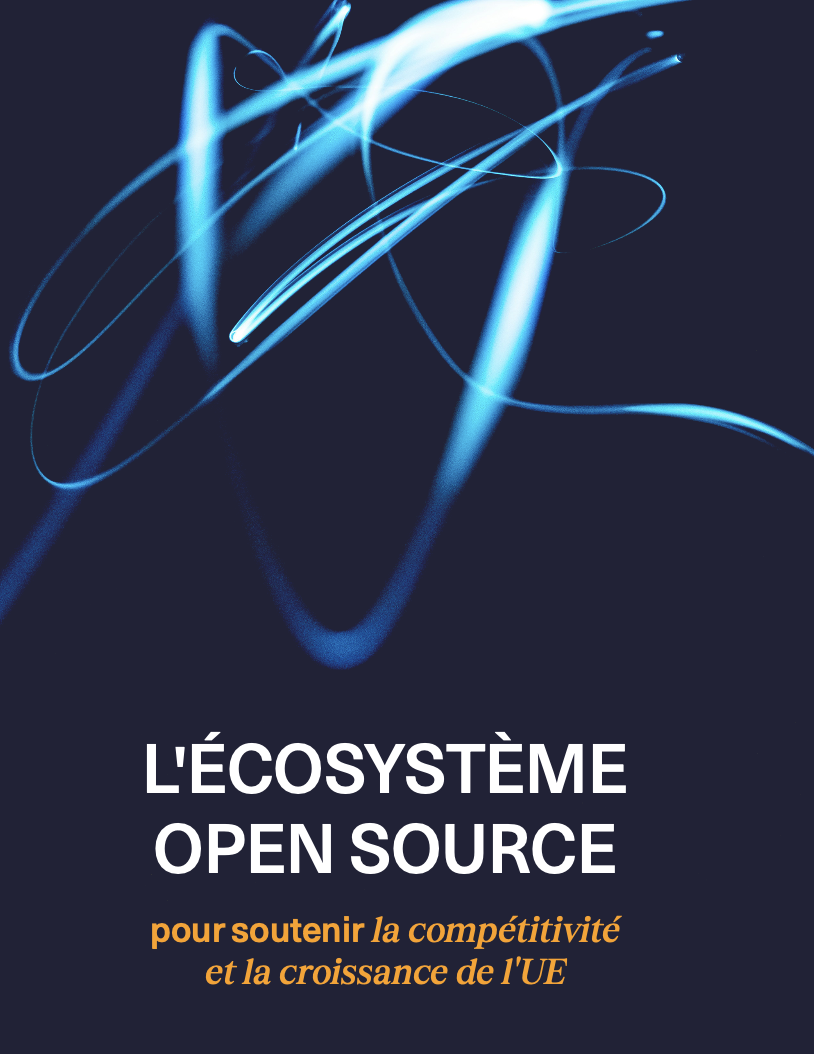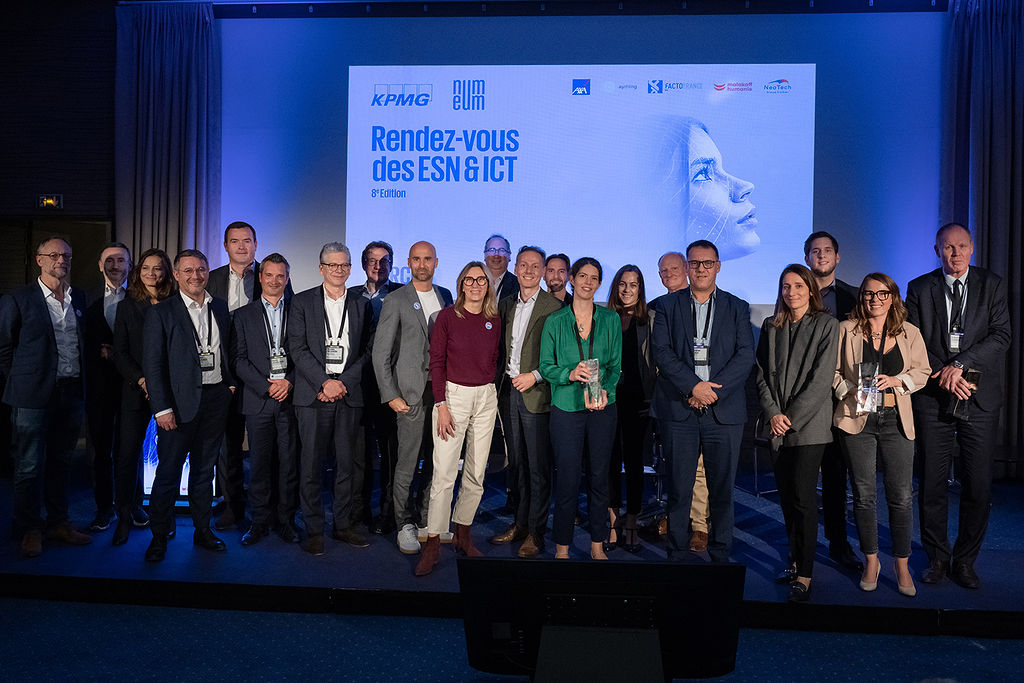Open Source: Numeum launches an appeal to support this little-known driver of European digital competitiveness

Open Source permeates all European digital infrastructures. Present in 96% of software, it is used by the majority of companies and public administrations. Yet it remains underestimated, underfunded and rarely considered as a strategic lever. Numeum alerts us to this paradox in a political manifesto, and proposes a clear action plan to make it a pillar of the European Union’s competitiveness and strategic digital autonomy.
Why Open Source is so much more than a technical solution
Open Source is based on a simple principle: code that is freely accessible, modifiable and shareable. Unlike proprietary software, it doesn’t lock organizations into closed environments. It gives them back control over their infrastructures, while stimulating innovation and cooperation.
It’s a proven collaborative model, enabling the design of robust, scalable software, audited by thousands of developers worldwide. By pooling resources and efforts, Open Source limits redundancies, accelerates development cycles and reduces costs. It is also a vector of transparency and interoperability, and thus a concrete foundation for building a sovereign digital future.
8 out of 10 companies already use it
Open Source is already present on a massive scale in our daily digital lives:
- 96% of software uses Open Source components
- It represents an annual value of between 65 and 95 billion euros in the European Union.
- Its global impact is estimated at $8,800 billion (Harvard Business School, 2024).
- Europe is home to 18.5 million contributors, or 15.4% of the global community
- In France, 8 out of 10 private companies and 9 out of 10 government agencies use them, including in critical areas such as AI, cloud, telecoms, healthcare or defense.

5 reasons to stop underestimating Open Source
● An gas pedal of technological innovation
With over 5 million active projects worldwide, Open Source is at the heart of progress in AI, cybersecurity, the cloud and data management. In France, for example, the Signaux Faibles project, born of Open Data, uses public data to detect companies at risk of insolvency.
● A concrete lever for transforming organizations
Companies – especially SMEs – rely on Open Source solutions that have been tested and audited, and are free from contractual dependency. URSSAF, for example, has replaced its community components with supported versions, enabling its teams to concentrate on their core business. An aircraft manufacturer, meanwhile, has simplified its technical architecture and accelerated the deployment of its applications by relying on Open Source bricks.
● A guarantee of strategic autonomy in the face of dominant publishers
The example of Broadcom’s takeover of VMWare (2023) – and the resulting explosion in prices and conditions imposed – is a reminder of how vulnerable companies are to software dependencies. On the other hand, Open Source enables companies to retain control over their code, their environment and their decisions.
The Ministry of the Interior’s internal cloud was designed on an Open Source foundation to guarantee this independence.
● A key tool for responsible digital
Modular, repairable and durable, Open Source components extend the lifespan of hardware and prevent programmed obsolescence. They also fuel committed projects:
- Datarchipel (territorial carbon footprint)
- Kepler (data center energy measurement)
- Karpenter (more economical allocation of cloud resources)
● A growth factor for the European economy
According to the European Commission, a 10% increase in European contributions to Open Source would generate up to 0.6% more GDP – or almost 100 billion euros. The number of contributors in Europe has increased 40-fold in less than 20 years. France occupies a prime position, particularly in Open Source AI, with an annual growth rate of +22% in active communities.
This model is not sufficiently supported
Despite its omnipresence in digital infrastructures, Open Source remains largely under-invested in by public authorities and economic players alike. It figures only marginally in public purchasing strategies, rarely in national or European industrial policies, and even less in stimulus packages or digital transformation plans.
Often seen as a matter for experts or a free solution on the margins, it is confined to a technical role, when it should be treated as a strategic asset, on a par with major innovation programs, cloud infrastructures or critical technologies.

The obstacles are well known: lack of knowledge of how it works, fears linked to legal liability models, lack of training for public purchasers, absence of clear doctrine on its use. The result: few incentives, little targeted funding, little institutional recognition.
A paradox, given that it is precisely these communities, projects and software bricks that are already underpinning the continent’s innovation, resilience and digital sovereignty.
4 concrete ways to scale up with Open Source in Europe
In its 2025 manifesto, Numeum calls for political and economic mobilization around 4 clear priorities:
- Integrate open source into all key technological transitions (AI, cloud, cybersecurity)
- Include it in European standards and regulations, to guarantee transparency, interoperability and reversibility
- Sustainable support for development communities, the guarantors of the quality and security of mission-critical software
- Make Open Source a default component of public procurement contracts, with an appropriate framework and trained buyers
Europe can no longer afford to treat Open Source as a secondary choice. It’s not an alternative for experts. It’s the invisible backbone of the European digital age. A foundation for competitiveness, sustainability and sovereignty. At a time when Europe is redefining its technological priorities, Open Source must no longer be a blind spot in industrial strategies. It’s time to make it a public policy in its own right.
Download Numeum’s manifesto for Open Source to support EU competitiveness and growth:


